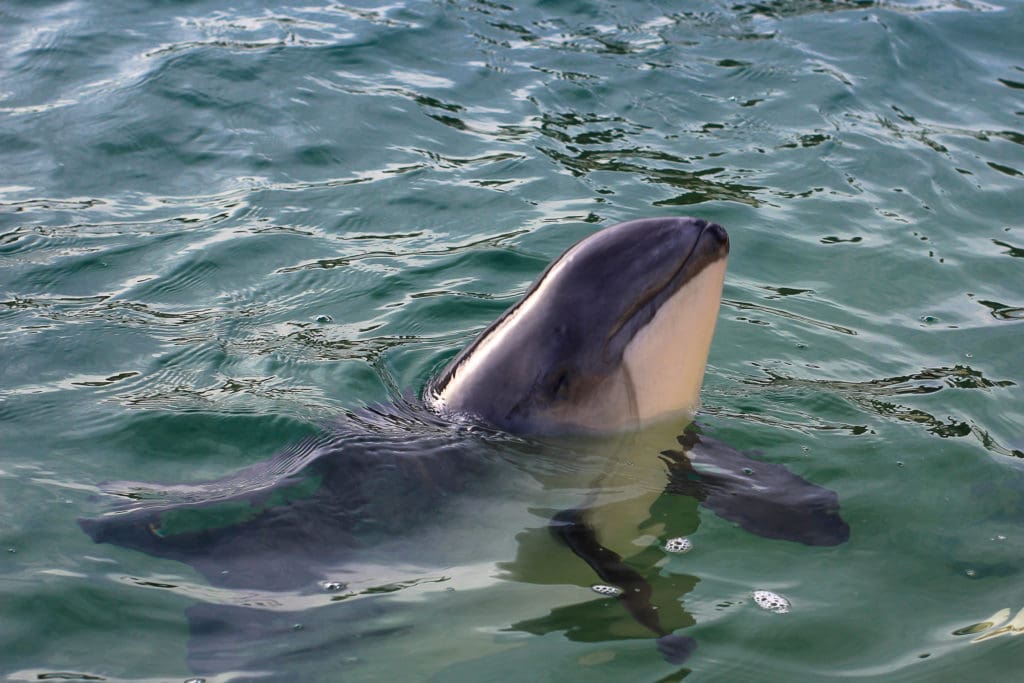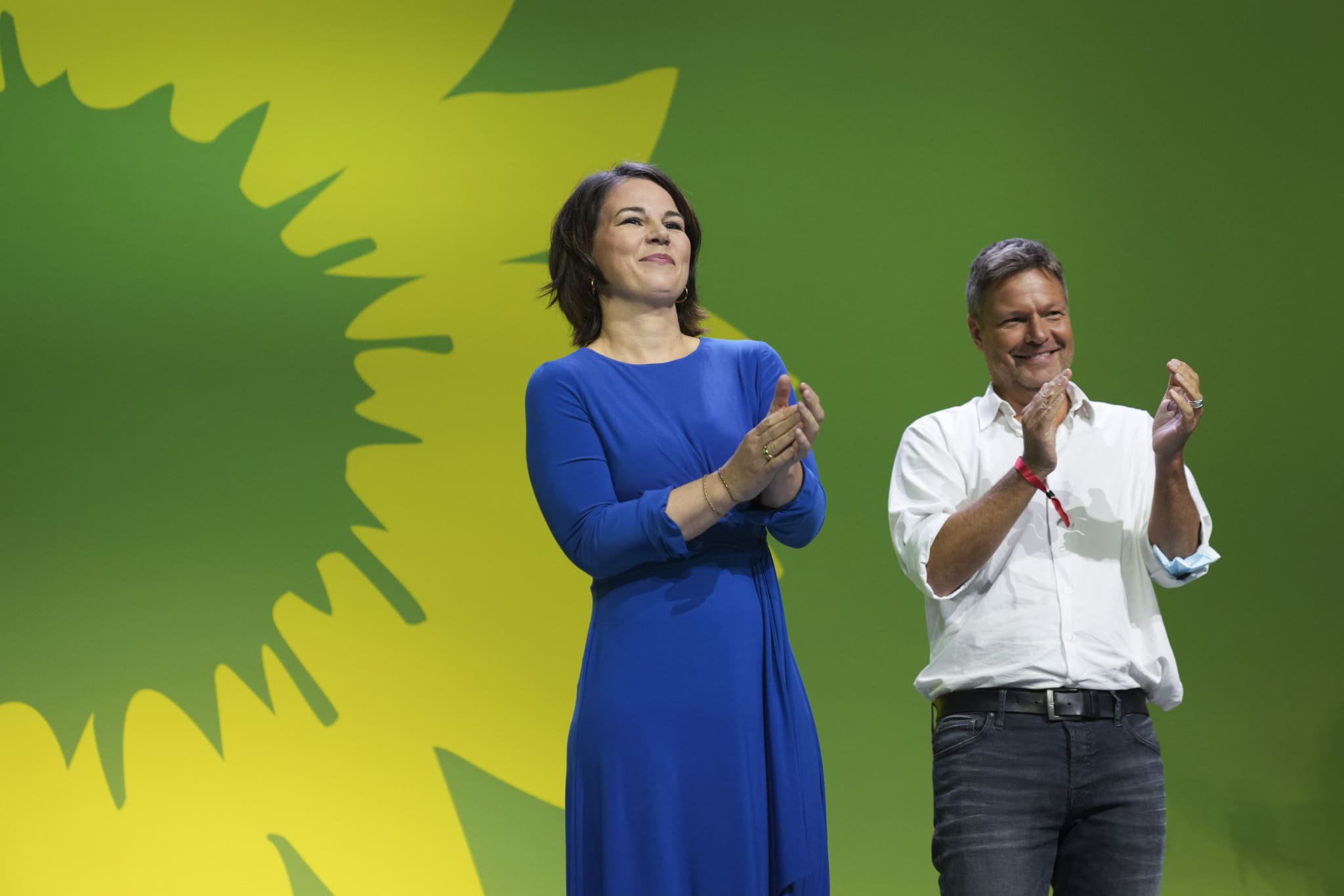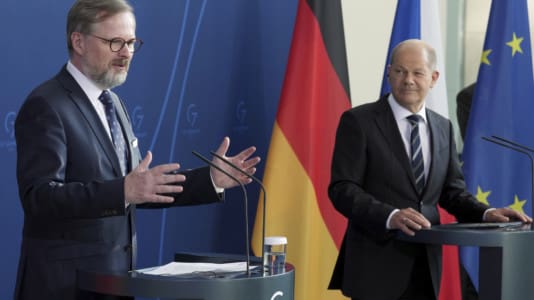“Environmental protection is a feel-good topic to hide hard-nosed ideology,” wrote Marco Gallina in his editorial for German independent news portal Tichys Einblick. He was referring to the latest chapter in Germany’s tragicomic energy policy, in which the construction of the new liquid natural gas (LNG) terminal in Wilhelmshaven was delayed due to the discovery of underwater biotopes in the area that are porpoise feeding grounds. According to environmental groups, the LNG terminal would endanger the marine mammals and therefore should not be built at all.
It appears the Greens are handing in their bill to the Social Democrat (SPD) and Free Democratic Party (FDP) for allowing their party to join the coalition government, and it will be left to Economic Minister Robert Habeck, also a member of the Green Party, to settle the outstanding balance for their fantasyland energy utopia. The green-energy transition the Greens have championed during the years of Angela Merkel’s government is already wreaking havoc, not only with the country’s energy security and industry, but also counterintuitively resulting in massive environmental damage.

A classic example of one of Germany’s climate activism-inspired disaster projects is the solar park in Hohensaaten in Brandenburg, where 370 hectares of forest were sacrificed on the altar of “eco-electricity.” A recent study in Spain also found that the country’s 18,000 wind turbines are killing 6-18 million birds and bats annually. Based on these figures, we can surmise how much wildlife has been sacrificed by Germany’s 29,000 onshore wind turbines. Other articles have pointed out that while wind turbines may be good for the climate, their effect on bird, bat and insect populations means they are doing tremendous harm to nature.
Now, the invasion of Ukraine has completely blindsided the German government, creating the perfect storm for the country’s energy policy. Not only must energy producers conform to strict environmental criteria, but they must also ensure they are not feeding into Russia’s war effort. Coal and lignite are out, nuclear is out and by the end of this year, Russian gas and oil are out, with the Nord Stream II gas pipeline literally dead in the water. Germany has found itself in a situation where its energy security must be balanced against the welfare of porpoises on the one hand, and the collapse of the country’s economy on the other.
[pp id=32735]
The German Environmental Aid (DUH) has lodged an objection to the decision of the State Office for Water Management, Coastal Protection and Nature Conservation (NLWKN) with the aim of freezing the LNG terminal construction, which was supposed to start this week. The DUH took the view that the principles of the rule of law must be upheld even in times of crisis, and this also applies to climate and environmental protection. Yet, this will put the Greens into an impossible positions, as not only have they contributed to the destruction of German energy security more than perhaps any other party, but are also the most militant political force in the country when it comes to arming Ukraine and punishing Putin’s Russia. The LNG terminal was meant to wean Germany off its dependence on Russian gas, but its environmental cost again reveals the Green’s headline-grabbing hypocritical gesture-politics.
Minister Habeck had no choice but to warn against the lawsuit brought by the environmental group, saying, “If we don’t have the LNG terminals and if the gas doesn’t come from Russia, the security of supplies in Germany is not guaranteed.”
[pp id=31887]
In other words, the Green’s joint leader is claiming that you are either on the LNG terminal’s side, or on the side of the porpoises, and inadvertently, also on Putin’s side. To exonerate the unsuspecting porpoises of any guilt though, in the type of emotional statement that is increasingly becoming the norm in German politics, Habeck confessed in cringe-worthy interview that he is “the biggest porpoise fan in the federal government. I love porpoises, I come from the coast.”
Nevertheless, the desperation tangible in Habeck’s words is a reflection of a radical party’s rise into power, one that was most comfortable churning out unrealistic populistic proposals as part of the opposition. Now, it seems they will have to pick up the pieces of Germany’s national energy security policy that they have so successfully undermined for years, and reconcile it with their uncompromising stance on pursuing tough sanctions against Russia. German political ineptitude of the last decades that some observers have described as having no adverse electoral consequences, could arrive to haunt German citizens in the shape of industrial and economic woes unknown to most of them for generations.






